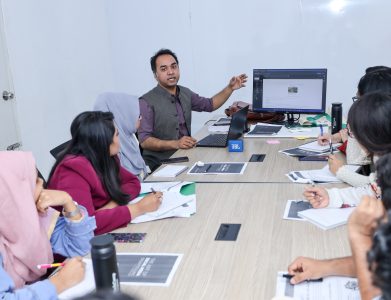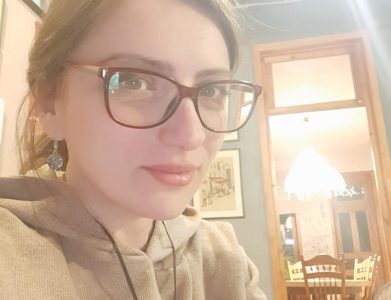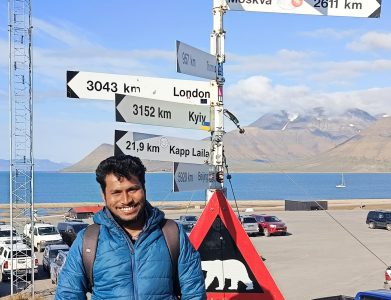Summary of Problem
It can take more than a day from Nairobi to reach the remote Samburu region of northern Kenya, where electricity and outside communication can be scarce. For an advocacy group whose work depends on frequent communication with the community, the challenges were mounting. But what if there were another way?
That’s what the group Fly Sister Fly tackled at a TechCamp in Pretoria, South Africa, for members of the Young African Leaders Initiative (YALI) network. Fly Sister Fly’s Vane Aminga, 26, had traveled to the remote rural areas where the Samburu people live to impress upon parents there the importance of educating girls. Fly Sister Fly donates everything from textbooks to school supplies to sanitary napkins to make it possible for girls to stay in school and get an education.
“One of our biggest challenges is that although we’re able to do advocacy campaigns and get kids in school, when we go back to find out if those kids are still in school, we find they’ve moved,” said Aminga, who is also a member of the Young African Leaders Initiative (YALI) network.
Aminga worked on solar-powered, digitally enabled radios during her TechCamp experience and, together with her group, developed a community radio distribution program that keeps communication with the Samburu flowing. YALI TechCamp Pretoria brought together 59 participants from 10 African countries to learn digital strategies for grassroots organizing as well as increasing communications capacity.
Supporting Girls’ Education in Rural Kenya
Vane Aminga started the Fly Sister Fly Foundation five years ago as a way to highlight the importance of educating girls in her native Kenya, specifically those of the Samburu, a semi-nomadic people.
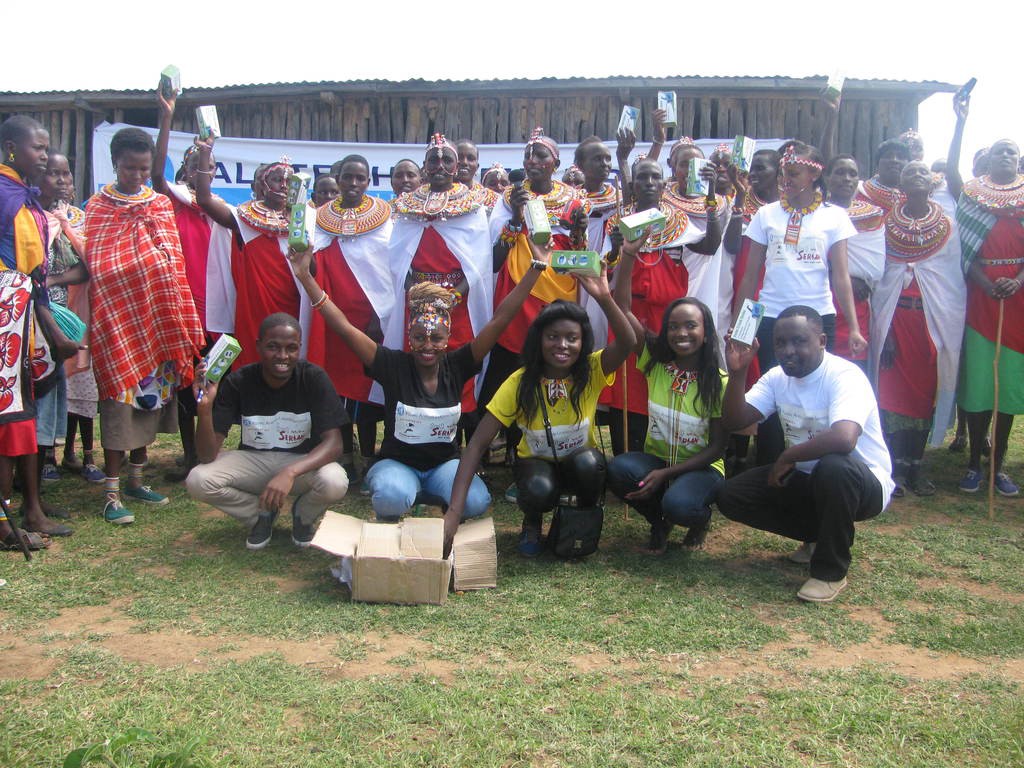
With Fly Sister Fly, Aminga, 26, had traveled to the remote rural areas where the Samburu live to impress upon parents there the importance of educating girls. Fly Sister Fly donates everything from textbooks to school supplies to sanitary napkins to make it possible for girls to stay in school and get an education.
“One of our biggest challenges is that although we’re able to do advocacy campaigns and get kids in school, when we go back to find out if those kids are still in school, we find they’ve moved,” Aminga said.
Finding Solutions at TechCamp
Aminga, who is based in Nairobi, was looking for a way to stay in contact with these communities, however far away they were. In fall 2015, she attended TechCamp Pretoria, South Africa, which brought technology experts together with young African leaders to share low-cost, easy-to-implement tools to help civil society organizations and other groups work more effectively. All participants at TechCamp Pretoria were members of the Young African Leaders Initiative Network (YALI), which, like TechCamp, is run by the U.S. Department of State.
Aminga attended a training session with Franklin Huizies, an expert on community radio who served as a trainer at TechCamp Pretoria. “If we want to bring social change into people’s lives, we need a mass tool that is cheap and easily accessible — radio is all of those,” Huzies said. “Radio, especially in Africa and the developing world, has gained momentum. It’s still relevant as far as reaching the heart of communities in rural areas.”
Aminga showed Huizies and the rest of the training group photos of the Samburu communities she worked with. Together with the team, Aminga and Huizies developed a plan for bringing educational content to Samburu communities using radio.
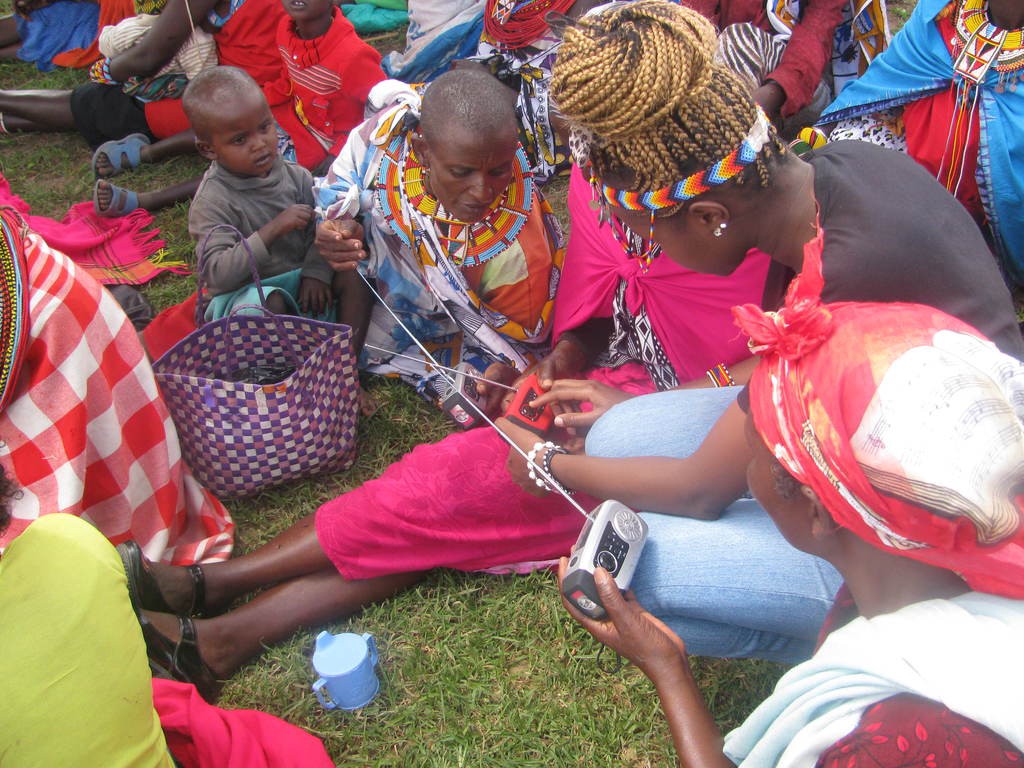
But ordinary radios wouldn’t do for a community like the Samburu. Huizies told Aminga about portable, solar-powered radios that, if provided to even a few members of a rural community, could be enough to allow community radio broadcasts to reach hundreds of people. Some radios, he said, had a memory slot that allowed them to play files of pre-recorded programs in the local language that could be downloaded if the signal of local-language stations was too far away.
“I was listening, and I thought, ‘Ah, yes, this can work for me!’” said Aminga.
Huizies encouraged her to apply for a TechCamp grant that would allow her to make the project a reality and offered to serve as an advisor. “When I was on the plane back home, I was writing my proposal,” Aminga said.
Her proposal was awarded the grant money and with Huizies’ help, she was able to find solar-powered radios that also could be charged with a wind-up crank. Better still, these radios had a light that would allow reading after dark, a memory slot for pre-recorded material, and a port that would let the radio serve as a power bank.
Phase one of the project saw the distribution of 80 more radios to other rural communities by the end of 2016.
Fly Sister Fly is partnering with Serian FM, the community radio station closest to the Samburu region. The station is setting aside time for Fly Sister Fly content each month as well as waiving production fees for the foundation. “Being able to provide the Samburu people with simple technologies like radio sets is a great milestone as we try to ensure that people have access to information they can use to better their lives,” Aminga said. “Information is power.”
Technology to Solve the Problem
Portable, solar-powered radios that, if provided to even a few members of a rural community, could be enough to allow community radio broadcasts to reach hundreds of people. Some radios, he said, had a memory slot that allowed them to play files of pre-recorded programs in the local language that could be downloaded if the signal of local-language stations was too far away.
